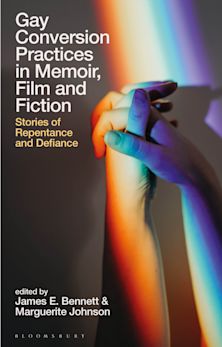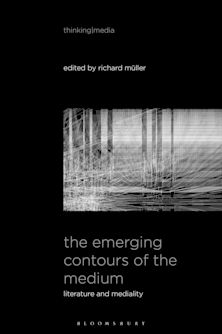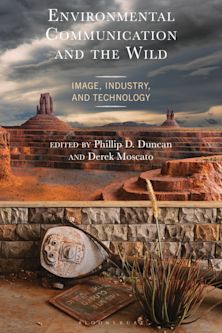- Home
- ACADEMIC
- Film & Media
- Film and Media Studies - Other
- Political Philosophy Comes to Rick's
Political Philosophy Comes to Rick's
Casablanca and American Civic Culture
James F. Pontuso (Anthology Editor) , Nivedita Bagchi (Contributor) , Paul A. Cantor (Contributor) , Leon Harold Craig (Contributor) , Kenneth De Luca (Contributor) , Ralph Hattox (Contributor) , Peter Augustine Lawler (Contributor) , David K. Nichols (Contributor) , Mary P. Nichols (Contributor) , Michael Palmer (Contributor) , Paul Peterson (Contributor) , James F. Pontuso (Contributor)
Political Philosophy Comes to Rick's
Casablanca and American Civic Culture
James F. Pontuso (Anthology Editor) , Nivedita Bagchi (Contributor) , Paul A. Cantor (Contributor) , Leon Harold Craig (Contributor) , Kenneth De Luca (Contributor) , Ralph Hattox (Contributor) , Peter Augustine Lawler (Contributor) , David K. Nichols (Contributor) , Mary P. Nichols (Contributor) , Michael Palmer (Contributor) , Paul Peterson (Contributor) , James F. Pontuso (Contributor)
This product is usually dispatched within 3 days
- Delivery and returns info
-
Free CA delivery on orders $40 or over
You must sign in to add this item to your wishlist. Please sign in or create an account
Description
Casablanca is a movie about love and loss, virtue and vice, good and evil, duty and treachery, courage and weakness, friendship and hate. It is a story that ends well, but only because the main characters make a heartbreaking choice.
Casablanca is perhaps the most widely viewed motion picture ever made, often finishing on critics' lists second only to Citizen Kane. What accounts for its continuing popularity? What chord does it strike with audiences? What lesson does Casablanca teach Americans about themselves? What influence does popular culture have on public mores? The contributors to Political Philosophy Comes to Rick's take up these questions, finding that Casablanca raises many of the most important issues of political philosophy. Perhaps Casablanca has an enduring quality because it, like political philosophy, raises questions of human life - the nature of love, friendship, courage, honor, responsibility, and justice.
Table of Contents
Chapter 2 "As Time Goes By": Casablanca and the Evolution of a Pop Culture Classic
Chapter 3 The Historical Context of Casablanca
Chapter 4 Historicism, Relativism, and Nihilism, versus American Natural Right in Casablanca
Chapter 5 Seductive Beauty and Noble Deeds: Politics in The English Patient and Casablanca
Chapter 6 An American Fantasy? Love, Nobility, and Friendship in Casablanca
Chapter 7 Casablanca and the "Truth" of Stereotyping: Rick and the American Character
Chapter 8 Ilsa's Choice: Love and Tragedy in Casablanca
Chapter 9 Bogart's Heroes: The Changing Face of Heroism in American Film
Chapter 10 Michael Curtiz: The Mystery-Man Director of Casablanca
Chapter 11 On the Argument of Casablanca and The Meaning of the Third Rick
Chapter 12 A Movie Skeptic's Thoughts on Casablanca
Product details
| Published | Jul 25 2005 |
|---|---|
| Format | Paperback |
| Edition | 1st |
| Extent | 208 |
| ISBN | 9780739111130 |
| Imprint | Lexington Books |
| Dimensions | 228 x 170 mm |
| Publisher | Bloomsbury Publishing |
About the contributors
Reviews
-
Without doubt, Casablanca is one of the greatest American films ever made; part of its enduring appeal, the essays in this volume reveal, lies in its ability to reflect the timeless ideas which permeate popular culture. James Pontuso has assembled an eclectic group of essays, exploring the film's moment in history, its place in the careers of Michael Curtiz and Humphrey Bogart, and – most importantly, perhaps – its lessons about the American character and about the relationship between individual happiness and moral or political obligation.
Christine Henderson, Liberty Fund, Inc.
-
. . . an imaginative text that treats cinema in a manner befitting its status, namely, as the new literary genre.
Perspectives on Politics
-
We tend to forget that the past is often a selective past, fashioned mostly by persons who are of a different time and place, and often according to the fancies of the historian. Such forgetfulness is not evident in James Pontuso's wonderful collection ofessays on one of the landmarks of film, Casablanca. The authors judiciously balance their concern for the enduring political and philosophic questions that emerge throughout the film and a deft understanding of the changes in artistic media and historical context through which those questions are shaped. Political Philosophy Comes to Rick's is a rare form of cultural criticism that works astutely within film medium. The philosophic and political claims are not forced or tortured. We are invited to listen, think, see, and feel..
Eduardo A. Velasquez, Washington and Lee University
-
We tend to forget that the past is often a selective past, fashioned mostly by persons who are of a different time and place, and often according to the fancies of the historian. Such forgetfulness is not evident in James Pontuso's wonderful collection of essays on one of the landmarks of film, Casablanca. The authors judiciously balance their concern for the enduring political and philosophic questions that emerge throughout the film and a deft understanding of the changes in artistic media and historical context through which those questions are shaped. Political Philosophy Comes to Rick's is a rare form of cultural criticism that works astutely within film medium. The philosophic and political claims are not forced or tortured. We are invited to listen, think, see, and feel.
Eduardo A. Velasquez, Washington and Lee University



































